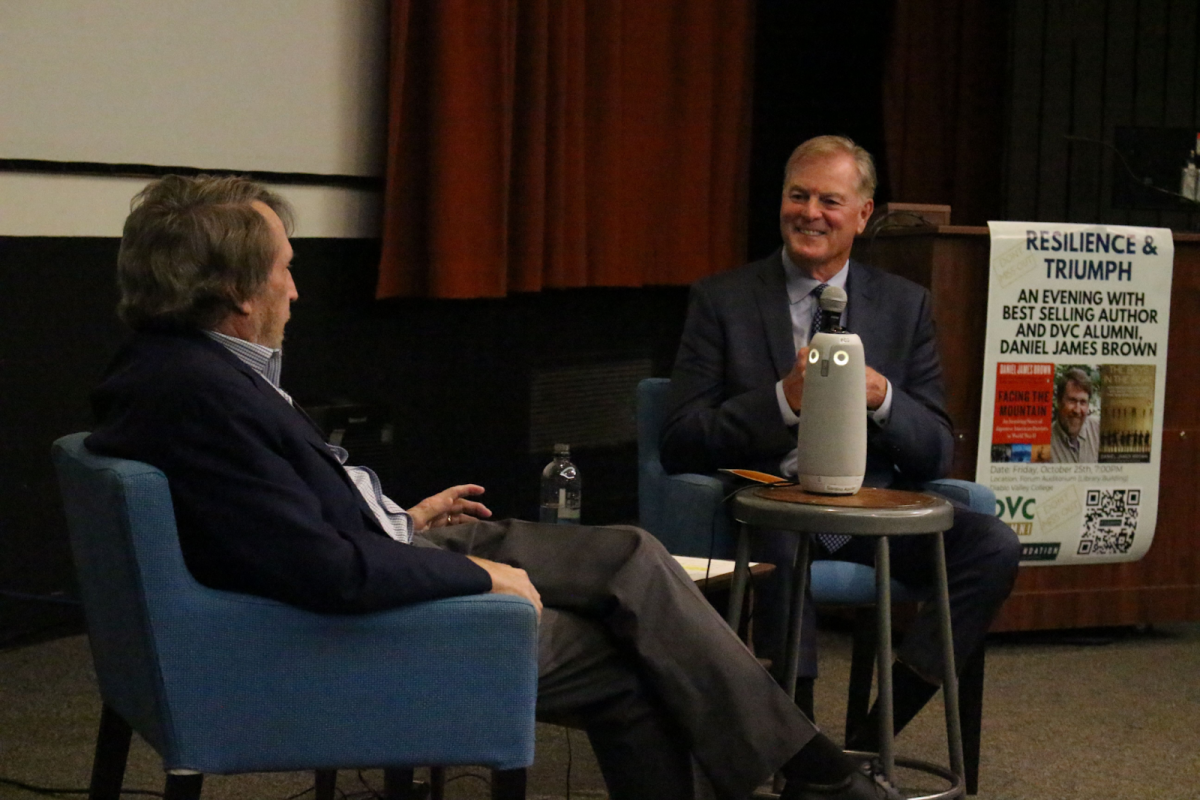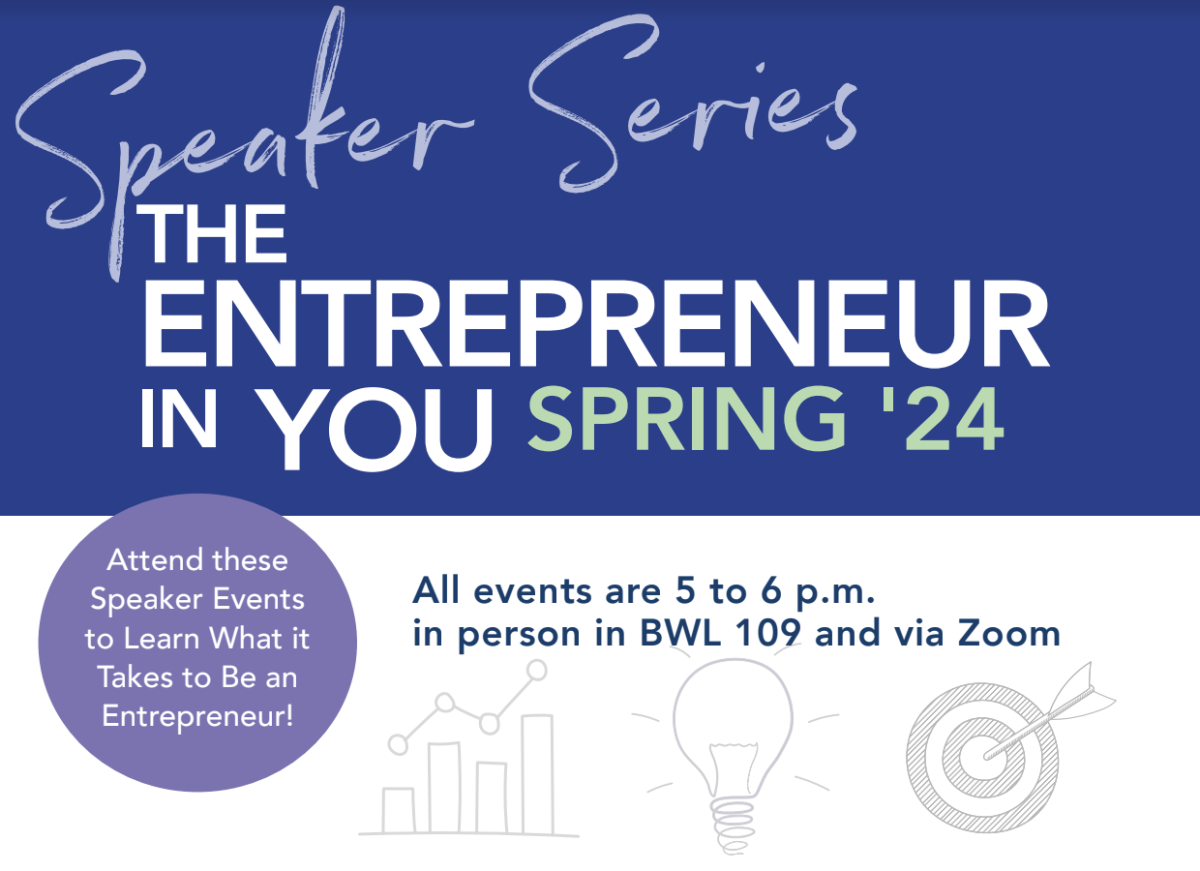In the business world, entrepreneurs succeed by honing in on their passion and taking risks. As Matthew Schmuck, a retired entrepreneur who worked in information technology for 38 years, told business students in a seminar at Diablo Valley College last week: “Don’t be afraid to fail.”
The Feb. 20 talk was part of DVC’s ongoing Business Beyond the Classroom series, hosted by the Business Administration Department, which covers a variety of topics in workshop and panel formats to help students gain insights and knowledge about the working world that they are not able to access in the classroom.
Schmuck started his first business, a consulting practice, in 1987 and later went on to run two successful startups. One was a software app called Valider that helped Stanford University meet government regulations, and the other was a club-turned-non-profit that focused on home aquariums.
Nowadays he regularly gives talks at DVC where he discusses different aspects of technology in business. His presentation last week focused specifically on A.I., including the ways he said the term is often incorrectly used by companies in their advertisements.
One example, Schmuck said, is the difference between Chat GPT and a falsely advertised A.I. refrigerator that scans the items placed inside it to create recipes based on their ingredients.
Artificial Super Intelligence, or A.S.I., refers to the growing idea—and in many people’s minds, the looming threat—that artificial intelligence will at some point “become our overlords and take over,” he said. However, such fears are likely misplaced, Schmuck said, as all forms of A.I. lack consciousness, which prevents them from having emotions or self-awareness.
At the same time, he said, general A.I. has already proven to be a useful and efficient way to perform tasks that would otherwise take humans much longer to accomplish. Simply put, “a computer doesn’t get tired,” Schmuck said.
In healthcare especially, the possibilities of creating faster systems with better accuracy, due to the mass amounts of data they can process, could be life-changing, according to Schmuck. A.I. in the form of personal assistants also opens the opportunity for people to pass tedious tasks such as scheduling appointments and running errands onto machines.
For students who attended the talk, Business Beyond the Classroom provided them with valuable information on technology in business that had not been brought up in classes.
“I’m very excited to attend these every time they pop up, because there’s so much wonderful information and resources in these classes,” Jennifer Fields, a second year student at DVC said.
According to Fields, there are many links on DVC’s website like Business Beyond the Classroom that provide useful and free resources to students that should be taken advantage of.
Starting several years with a first appearance on DVC’s event calendar in 2020, Business Beyond the Classroom meetings have become a tool for students like Fields, who has been consistently attending the workshops since last semester.
Business management professor Mariam Worsham, one of the founders of the Business Beyond the Classroom series, said bringing speakers from different backgrounds to share their experiences offers invaluable lessons to students.
“We wanted to really provide an opportunity to expose students to business topics that we didn’t feel we could cover in the time we had in the classroom,” Worsham said.
These bimonthly seminars meet in-person at the Business, Computer Science and Culinary Student Center at Business & World Language (BWL) 109 and on Zoom. This series is organized with the help of professors Liz Cabiles, Heather Gravendaal and Lo Ann Wrinkler. DVC Workforce Development also assisted the group in acquiring a grant to support the continuation of the workshops.
Attendees generally range from students who are interested in starting a business to those who have a startup and are wanting to learn more about how to grow it. The topics of Business Beyond the Classroom lectures have ranged from networking and small business funding to career and the transfer services.
“We get a lot of positive comments about it,” Worsham said. “A lot of students tell us that it really helped because it gave them some information that they didn’t have before to help them start their businesses.”












































































